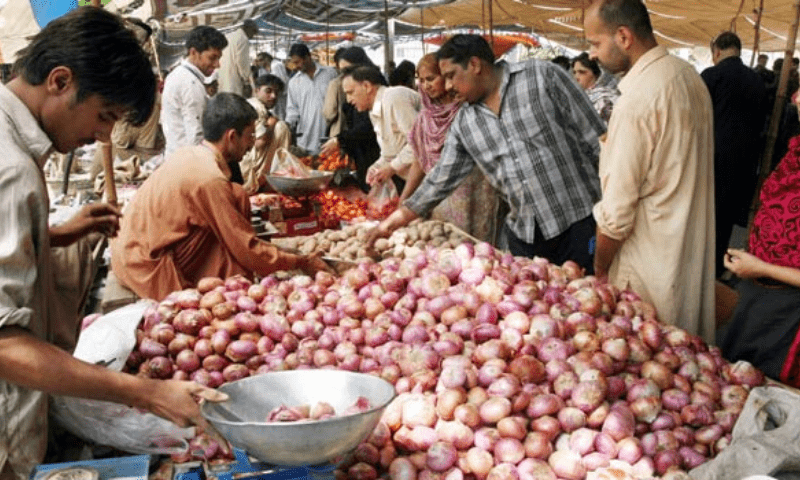OFFICIALS often describe Pakistan as an underperforming country plagued by low tax obedience and high informality. A country where citizens supposedly evade regulation, conceal incomes and avoid the formal economy out of habit or delinquency. This narrative, echoed endlessly by donor agencies and technocrats, misses the mark entirely. Far from being a reflection of mass dishonesty, informality is the population’s response to egregious governance and erratic policymaking, not a cause of it.
Markets have existed long before states-imposed rules on them. For most of human history, economic exchange was informal and self-regulated. Post the Great Depression states attempted to institutionalise comprehensive market regulation. But in countries where the state apparatus is extractive, regulatory structures are punitive, and public services lacking, the informal economy does not shrink; it thrives. People do not disengage from the formal system because they reject order or rules; they do so because the system punishes participation and rewards avoidance.
In Pakistan, the informal sector is not an aberration. It is the economy’s lifeboat. With estimates ranging from 30-70 per cent of GDP and over 70pc of non-agricultural employment, informality underpins the real economy. It is found in bazaars, construction sites, workshops and transport hubs. It keeps the economy afloat, cushions the poor and supplies goods and services to the formal sector itself. Where the formal economy is hamstrung by high entry barriers and stifling compliance costs, the informal economy is nimble, responsive and inclusive.
This is not unique to Pakistan. Informal economies exist globally, but their size reflects the quality of governance. In the US and UK, informality hovers around 8-12pc of GDP, limited to undocumented labour or off-the-books services. In Germany, it’s about 10pc, while in Italy and Greece, it climbs to 20-25pc. China maintains a large informal labour force, especially among internal migrants. In countries like India, Nigeria and Bangladesh, the informal sector constitutes 50-65pc of GDP and often over 80pc of employment. These variations are not cultural; they are institutional. Informality grows when the state fails to provide stability, justice and opportunity.
Informality grows when the state fails to provide stability, justice and opportunity.
Economists use various proxies like electricity consumption patterns, discrepancies in national accounts and labour force surveys to estimate the informal economy. But the most powerful evidence is not statistical. It is experiential. The prevalence of informality is a mirror held up to the state. And what it reflects is dysfunctionality.
The informal entrepreneurs are often more innovative, dynamic and risk-tolerant than their formal counterparts. They operate without subsidies, navigate unruliness without protection, and finance their ventures through personal savings. In contrast, the formal sector in Pakistan is weighed down by a complex and inequitable tax regime, arbitrary inspections, bribe-seeking officials and documentary requirements that are out of step with a low-literacy population. Add to this the dysfunction of slow and unreliable courts, and unsurprisingly rational businesses choose to stay small and invisible.
Contrary to popular belief, informal markets are not chaotic or untrustworthy. They often function with remarkable efficiency. Informal foreign exchange markets in Pakistan and Latin America have operated for decades without systemic defaults, relying instead on trust, reputation and performance. Even the so-called smuggler-run supply chains generally outperform state-run systems, offering better prices, reliability and speed. It is formal systems, burdened by overregulation and captured by vested interests that frequently undermine operational sustainability, and contribute to procurement failure and crises.
This budget illustrates yet again why the convoluted and anomalies-ridden tax structure incentivises businesses to exit the formal system. The already prohibitive rate of withholding tax on the sale value of services has been raised from 11pc to an extortionate 15pc. Furthermore, while non-Tier 1 retailers can now pay a flat 2pc as full and final tax for digital transactions, formal Tier 1 businesses must suffer an 18pc GST. The system mocks and punishes them for shunning the safer option, embracement of informality!
This speaks to a deeper issue. For years, the Pakistani government has launched aggressive drives to ‘document’ the economy through non-filer crackdowns, torturous withholding taxes, and digital documentation mandates. Yet each wave brings with it shifting rules, legal ambiguities and administrative overreach. Firms respond predictably: they avoid growth, minimise visibility and stay under the radar. The volatility of policy, and not just its content, is a key driver of informality.
This volatility is not without consequence. It distorts investment decisions, discourages innovation and freezes businesses at the micro level. Many entrepreneurs, capable of scaling, deliberately stay small — not because they lack ambition, but because they fear what state visibility might bring: harassment, penalties, unpredictable audits and compliance traps. In such an environment, informality becomes a rational economic shield rather than a temporary condition.
Regrettably, many in policy circles still speak of ‘eliminating informality’ as if it were a disease. It is not. What needs eliminating is the state’s predatory and capricious behaviour — a system that taxes without serving, regulates without enabling and punishes without protecting.
As Peruvian economist Hernando de Soto once put it, informality is “the people’s spontaneous and creative reaction to the obstacles that the state places in their way”. It is a rational, often brilliant, response to institutional failure. Rather than crush it, the state should learn from it.
If Pakistan genuinely wants to expand the formal economy, it must begin by reforming itself. Simplify taxes and compliance procedures, lower rates, stop arbitrary enforcement, and offer real benefits, such as access to credit, legal protection and market infrastructure. Make formality attractive, not punitive. People will formalise when the state earns their trust, not before.
Until that happens, informal markets will remain the true face of Pakistan’s economy, not because people want to cheat, but because the state gives them no better option. Informality is not a crime. It is a verdict.
Nadeem Ul Haque is former deputy chairman, Planning Commission.
Shahid Kardar is former governor, State Bank of Pakistan.
X: @nadeemhaque
Published in Dawn, July 18th, 2025
